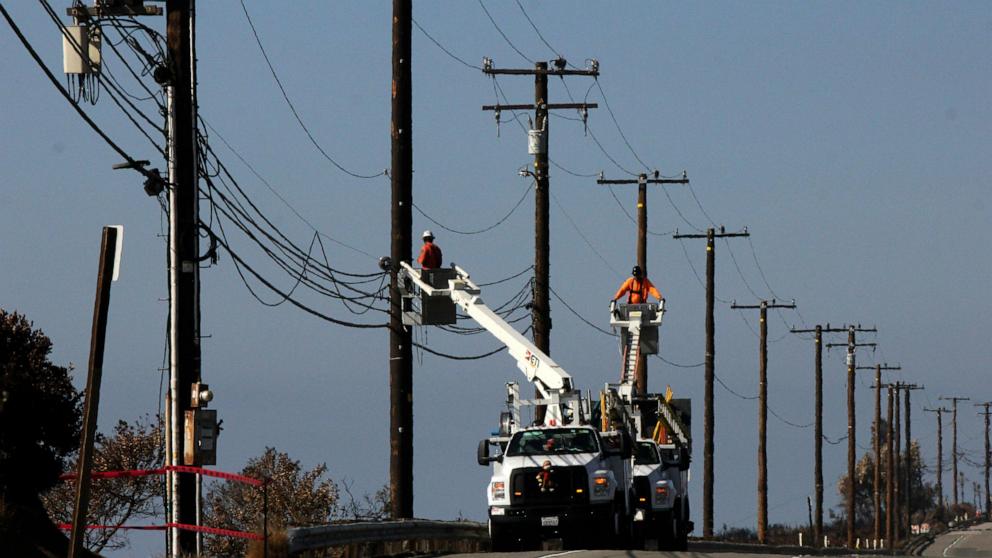California regulators will likely change how some energy companies calculate their customers’ bills
SACRAMENTO, Calif. — California regulators on Thursday are likely to change how some energy companies calculate their customers’ bills, a decision that would make it less expensive for people to charge electric vehicles and cool their homes in the summer but would increase electric vehicle prices. Those who don’t use a lot of energy.
The California Public Utilities Commission will vote on whether to allow utilities owned by the state’s big investors — including Pacific Gas & Electric — to add a flat fee to people’s electric bills each month. For most people, the fee will be $24.15 per month, and things like installing and maintaining the equipment needed to carry electricity to homes will be paid for. Low-income residents enrolled in one of the two rebate programs will pay less, either $6 or $12 per month.
In exchange for the new fee, the price of electricity will decrease by between 5 cents and 7 cents per kilowatt hour. One kilowatt-hour is the amount of energy needed to use a 1,000-watt appliance — a coffee maker or vacuum cleaner, for example — for one hour.
For people who use a lot of energy each month, this could lower their monthly bills. According to the commission, people who live in Fresno — where temperatures can often exceed 100 degrees Fahrenheit (37.8 degrees Celsius) — would save about $33 running their air conditioners during the summer. This is because the savings they will get from lower electricity prices will be more than the amount they pay for the new fixed charges.
It would also benefit people who own electric cars and use other electrical appliances, such as heat pumps. They will save an average of $28 to $44 per month, according to the committee. In 2022, California accounted for 37% of the nation’s light-duty electric vehicles, about six times as much as Florida, the second-place state, according to the U.S. Energy Information Administration.
“The new billing structure distributes fixed costs among customers more evenly and will encourage customers to adopt electric vehicles and replace gas appliances with electric appliances because they will be less expensive,” Administrative Law Judge Stephanie Wang wrote in a proposed decision explaining the charge.
For people who don’t use a lot of energy, new flat charges could increase their bill each month. This includes people who live in smaller apartments or live in cooler areas and don’t use air conditioning as often. This is because the lower price of electricity for them will not be enough to compensate for the new monthly fee.
Opponents say that would be a disincentive to conserve energy, something California is urging people to do.
“If you want to design a policy tool that will send the signal that conservation doesn’t matter, this is it,” said Ken Cook, president of the Environmental Working Group.
Most states already have installed monthly fees on utility bills to pay for maintenance and infrastructure of the electric grid. But in California — where electricity prices are among the highest in the country — any move that could raise prices for anyone has consumers and elected officials worried.
A group of 18 California lawmakers called on the commission to keep the rate low, noting that the national average flat fee on utility bills is $11. Some Democrats and Republicans in the state Legislature have supported a bill that would cap fees at $10 a month.
“We must do more to rein in our state’s rising costs of living, not find new ways to add to them,” California Senate Republicans wrote in a letter urging the committee to reject the proposal.
The proposal is far less than what the state’s investor-owned utilities had requested, which was a fee of between $53 and $71 per month. The commission also says the fees will not discourage rationing, noting that utilities are already allowed to increase rates during peak hours.

“Typical beer advocate. Future teen idol. Unapologetic tv practitioner. Music trailblazer.”






More Stories
Cryptocurrency firm Ledger raises price of Stax crypto wallet, launches Flex
Tesla shares fell 7% in premarket trading after failing to report earnings.
Elon Musk: Trump Presidency Could Hurt Tesla’s Competitors